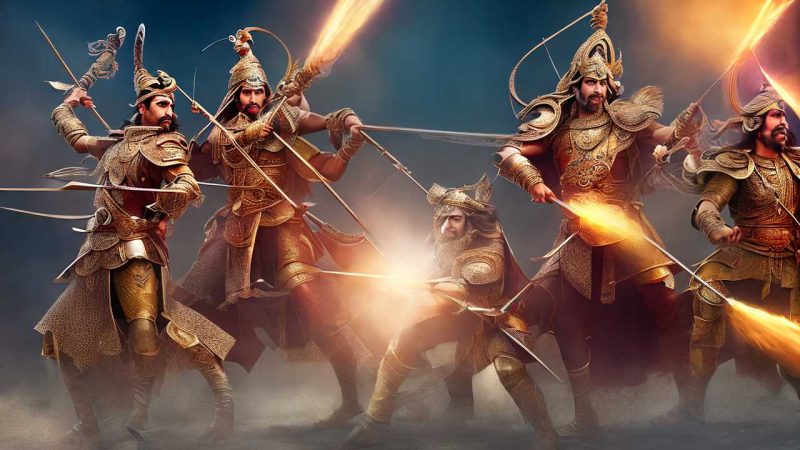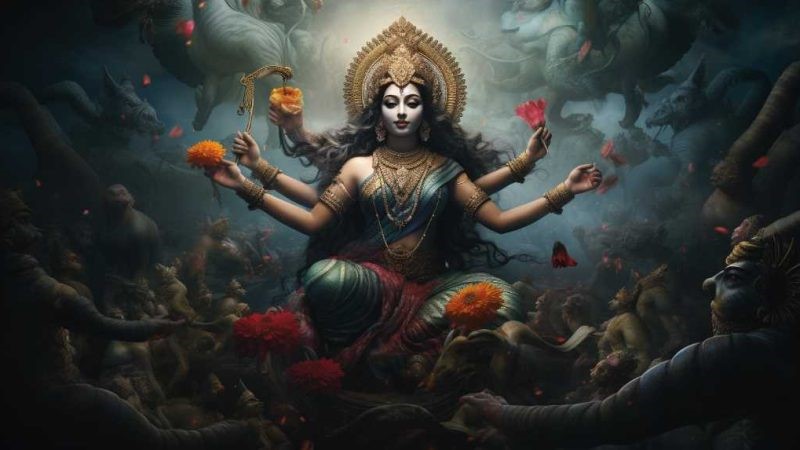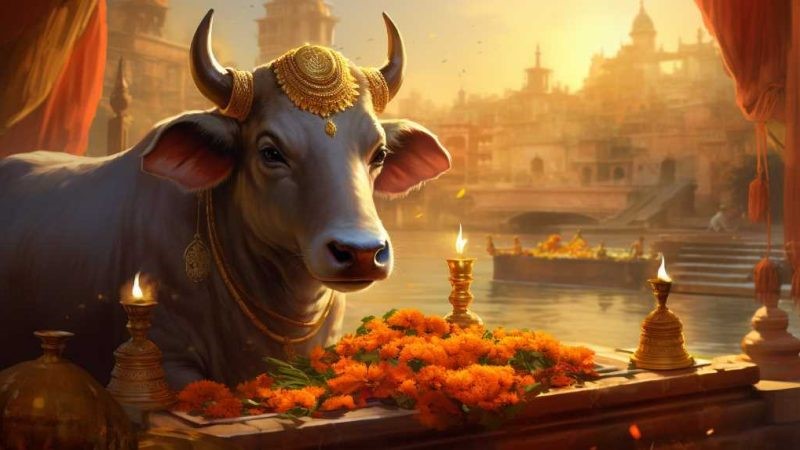Profiles of Renown Spiritual Leadership in Hinduism

Hinduism is known for its spiritual depth, largely thanks to its wise spiritual leaders. These leaders, like Veda Vyasa, who organized the Vedas, and Swami Vivekananda, a modern thinker, have each added their own touch to how Hindu beliefs and practices have grown. Their dedication to finding spiritual truth and helping others gives us more than just stories. It shows us the core of Hinduism.
Looking at their lives helps us understand not just the religion’s history, but also humanity’s desire to connect with something higher. The key question is: what makes these people stand out as spiritual role models, and how do their teachings keep motivating many people to seek spiritual satisfaction?
To answer this, let’s consider how these leaders have lived and what they’ve taught. Someone like Veda Vyasa didn’t just write important texts; he made the wisdom of the Vedas accessible to many people. Swami Vivekananda traveled widely, speaking about Hinduism’s core ideas, which showed the world the religion’s relevance. Their impact goes beyond their lifetime because they addressed universal questions and provided guidance that is still relevant today.
They are remembered not just for their wisdom, but also for their ability to inspire and uplift people. Through their examples, they’ve shown how to live a life that balances spiritual growth with social responsibility.
The Sage of Ancient Lore: Veda Vyasa
Veda Vyasa is highly respected for his work on Hindu sacred texts. He is known for dividing the Vedas, which are important religious texts, into four easier-to-understand sections: Rig, Yajur, Sama, and Atharva. This made it easier for people to study them.
Veda Vyasa is also famous for writing the Mahabharata, a long story that teaches a lot about how to live a good life through its complex characters and situations. His work is still used today to help people make good decisions and understand moral issues.
Vyasa’s ability to sort the Vedas helped protect these texts for future generations. The Mahabharata, because of its detailed storytelling and important lessons, is still a key guide for people looking for wisdom. Vyasa’s teachings are as valuable today as they were in the past, showing how to deal with life’s challenges.
The Saint of Miracles: Adi Shankaracharya
Adi Shankaracharya was a major figure in Hinduism who built on the work of Veda Vyasa. He was famous for his deep philosophical thoughts and is said to have performed many amazing acts. Shankaracharya was a wise teacher who brought new energy to the idea of Advaita Vedanta. This concept teaches that everything in reality is one, not separate. He wrote detailed explanations of important Hindu texts like the Upanishads, the Bhagavad Gita, and the Brahma Sutras. These writings helped bring people together during a time when religious beliefs were split apart. Stories about Shankaracharya’s great debates and magical events have made him a respected spiritual figure, and his influence is still felt today.
In simple terms, Shankaracharya made people think about Hinduism in a new way. He argued that there’s only one truth, and everything is part of it. His ideas are important because they helped unify different religious groups. He didn’t just talk about these ideas; he also backed them up with strong arguments in his books. This made it easier for others to understand and follow his teachings. His life’s work continues to inspire and guide people in their spiritual lives.
The Reformist Philosopher: Swami Vivekananda
Swami Vivekananda was a student of the spiritual leader Ramakrishna Paramahamsa. In the late 1800s, he became important for bringing new life to Hindu spiritual teachings during a time when the world was changing quickly. His powerful talks at the World’s Religions Meeting in Chicago in 1893 were a game-changer. They showed the world that Hinduism was still relevant. He smartly combined old Hindu teachings with new ideas, which helped different religions understand each other better and agree on some common spiritual truths.
Vivekananda taught that everyone’s soul is divine and that everything in the world is connected. These teachings helped to change religion and society not just in India, but around the world. Even today, people are inspired by his way of thinking, which brings together spirituality and logical thinking.
For example, he emphasized service to others as a crucial aspect of spiritual growth, which encouraged many in India to work towards social welfare. His call for universal brotherhood also helped to reduce barriers between people of different faiths. In a style that feels like a conversation, we can see how Vivekananda’s ideas are still relevant. He inspires us to think deeply and to blend our spiritual beliefs with practical actions.
The Divine Poetess: Mirabai
Mirabai was a Rajput princess from the 16th century who became a famous poet. She is known for her deep love and dedication to Hindu spirituality, especially through her poetry and songs about Lord Krishna. Mirabai faced many challenges, including opposition from society because she did not follow the expectations for women at that time. However, she expressed her love for Krishna in her songs, which are still sung today. These songs, known as bhajans, show her commitment to spiritual freedom and her love for the divine without concern for society’s rules.
When we look at what Mirabai did, we see that she was a bold figure who inspired others to seek a deep spiritual connection, even if it meant breaking away from traditional limits. Her life shows us that personal difficulties and going against what is expected can lead to a deeper spiritual experience. Mirabai’s work is a great example of how to express your beliefs in a powerful way that can inspire people for many years. Her songs not only show her own spiritual journey but also encourage us to find our own path to spiritual growth.
The Ambassador of Yoga: Swami Sivananda
Like the way Mirabai’s songs have deeply influenced Hindu faith, Swami Sivananda has made yoga popular all over the world. He was born in 1887 and was a doctor before he decided to focus on spiritual life.
In 1936, he started the Divine Life Society to share his knowledge of yoga and Vedanta. He wrote a lot and taught people that combining different types of yoga could help them grow spiritually.
Swami Sivananda’s ideas are still alive today thanks to his students, who have set up many yoga centers everywhere. These centers help people understand how yoga can be part of their daily lives.
Swami Sivananda brought together different yoga traditions into one, showing that yoga can improve our physical health, clear our minds, and help us find inner peace and understand ourselves better.
Conclusion
In summary, these spiritual luminaries have profoundly shaped Hinduism’s diverse tapestry.
Veda Vyasa’s scriptural contributions have played a pivotal role in preserving and disseminating the knowledge contained in the Vedas and other sacred texts.
Adi Shankaracharya’s philosophical advancements have brought forth the concept of Advaita Vedanta, emphasizing the non-dual nature of reality and the ultimate goal of self-realization.
Swami Vivekananda’s reformist ideals have revitalized Hinduism in the modern era, promoting social equality, religious tolerance, and the synthesis of Eastern and Western philosophies.
Mirabai’s devotional hymns have inspired countless devotees with their heartfelt expressions of love and devotion to Krishna.
Swami Sivananda’s dissemination of yoga has made this ancient practice accessible to people around the world, promoting physical well-being, spiritual growth, and harmony of mind, body, and soul.
These luminaries represent distinct yet interconnected facets of Hindu spiritual leadership. Their collective legacies continue to resonate, providing guidance, inspiration, and a rich heritage of religious thought and practice for adherents and scholars alike.






